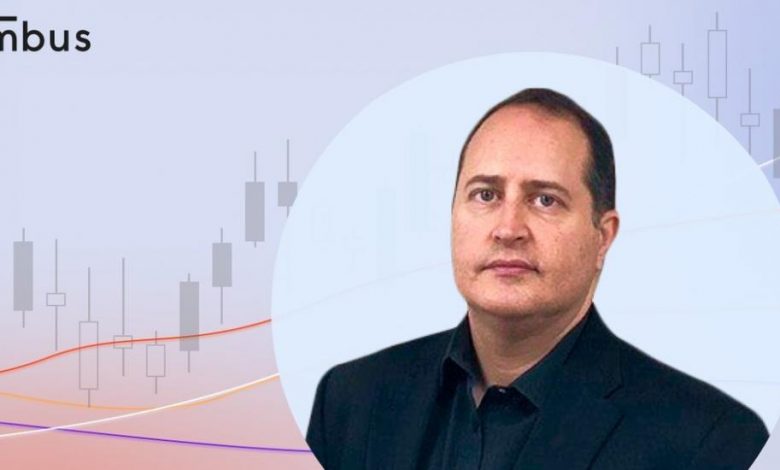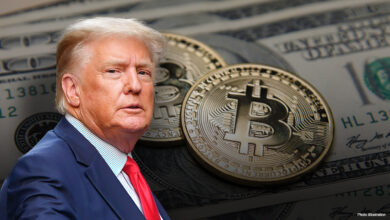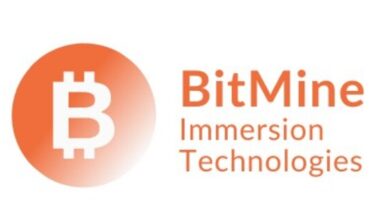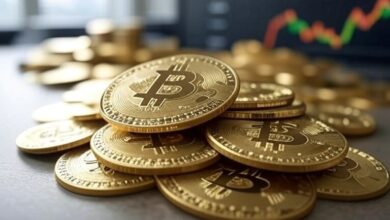Blockchain, Crypto and Tokenization grows and enhances Shariah Compliant Investment

Whether it is Islamic Finance or Islamic investment, both industries have been witnessing strong growth over the past years. According to BNY Mellon, “In 2019, Islamic finance assets amounted to US$2.88 trillion, the highest recorded growth for the industry since the global financial crisis, in addition the prospects look positive: by 2024, this is set to rise to US$3.69 trillion.”
But before going into Shariah compliant investments it is best to first define it. Shariah-compliant funds are investment funds governed by the requirements of Shariah law and the principles of the Islamic religion. Shariah-compliant funds are considered to be a type of socially responsible investing. While Shariah compliant funds were first developed in the late 1960s, According to a report by PWC (Price Waterhouse Coopers) in 2011, the Shariah compliant funds grew at an annualized rate of 26 percent in the first ten years of the 21st century.
According to a report by the Malaysia Islamic International Financial Center, total global Islamic assets under management (AUM) were $70.8 billion at the end of the first quarter of 2017.The corresponding figure in 2008 was $47 billion. However, it is difficult to accurately estimate the industry’s size or valuation because much of the investment occurs through private placement. The funds are also not traded in secondary markets, thereby providing less of a window into their constituents.
Blockchain implementation in Shariah compliant investments and the utilization of crypto and tokenization will have a positive impact on the growth of Shariah investment funds as well as enhance the efficiency and compliance to Shariah requirements. UNLOCK spoke to Waseem Mamlouk, VP of Capital Markets@Nimbus DeFi.
Nimbus is a DAO-governed ecosystem of dApps that offer 16 revenue streams for users based on IPO participation, Lending, Crypto-Trading, and has more than 50,000 users. Nimbus is now preparing a Shariah compliant digital asset management program. Nimbus DAO, a set of immutable and audited Smart Contracts which underlie all Nimbus solutions and automatically implement all decisions of Nimbus Governance token (GNBU) holders will govern this program.
To better understand how blockchain and crypto can benefit Shariah compliant investment, it is first important to understand if crypto itself is Shariah compliant. As Mamlouk explains, “Around a year ago the Malaysian Securities and Commodities authority announced that they consider crypto trading to be Shariah compliant. While they didn’t go into extreme detail of what makes crypto Shariah compliant it is a start, and we a Nimbus have instituted a process to ensure that it is Halal.”
Although Islamic banking has become a popular tool for Shariah compliant financing and banking, Mamlouk believes that Blockchain as a technology and crypto can enhance the compliance factor. He explains, “Today with Islamic Banking, clients are not aware that Islamic banking when implemented is usually mixed with regular banking institutions globally especially when it comes to correspondent banks and traditional value transfer mechanisms. As such Islamic Shariah compliant funds get mixed in a pool of non-compliant funds because most banks use traditional means of transferring value.”
He gives an example of the utilization of SWIFT where there is no way to guarantee the chain and be 100 percent sure that this chain does not contain non Islamic value. One can just take a look at HSBC Amanah Funds, where HSBC was recently slammed with money laundering accusations; as such clients who are looking for Shariah compliant investments or banking never truly know what is going on.
This is where cryptocurrencies and Blockchain as well as DeFi applications come in. As Mamlouk explains, “In Traditional Islamic Banking, Banks ask their clients to use a currency, and usually this currency is the US dollar which is the most widely used currency for money laundering and/or illegal purchases, so the value chain and the currency being used is not necessarily Shariah compliant. One of the solutions that we use at Nimbus is the utilization of freshly minted crypto such as BTC which means they have never been traded or used as they have just been mined, thus introducing Shariah compliant mining.”
Secondly most Islamic investment funds utilize Shariah Councils to ensure that the investments and process being followed is Shariah compliant, but Nimbus has resolved this with what we can implement in a DAO structure (Decentralized Autonomous Organization) for governance, where investors can vote based on the amount of tokens they hold- creating a more democratic form of investment, allowing investors to do more of what they want, which is also part of Halal business.”
Even tokenization can benefit and enable a broader Shariah compliant investment Fund. As Mamlouk explains, “ Today most Sukuk investments are vastly oversubscribed because there are not enough assets, but by creating token backed assets, we can broaden the investment base, because we can add tokens to meet this voracious demand, thus it becomes an open-ended investment for a potentially unlimited number of people, providing not only scalability but also liquidity through the ability to instantly trade these tokenized assets and simultaneously holding true to principles of democratized, Sharia finance.”
In addition, since these Shariah compliant funds utilize Blockchain technology, users ensure that they have invested in equally Shariah compliant products, because of the self-auditing tool in the Blockchain platform. The Blockchain verifies the tokenized assets on the chain and their compliance as well as transaction history while Smart contracts ensure that the terms and conditions are met and implemented as agreed upon. Mamlouk states, “In many instances banks and the big players have colluded against clients and not kept their word, and even if they themselves have done everything right, sometimes the economic backdrop fails, but with a trusted regulated DeFi partner this trust is ensured and hard coded.”
Nimbus is domiciling its operations in highly regulated countries, and is seeking in the future to carry out an IPO (Initial Public Offering). According to Mamlouk they will also be seeking further regulatory licenses in North America.
In summary, Nimbus is prepared to offer clients Shariah compliant funds utilizing smart contracts, and the Nimbus governance token (GNBU), as well as freshly mined Bitcoin (BTC) to guarantee a totally clean investment. The smart contracts verify that everyone is compliant, because as Mamlouk states, once the smart contract is turned on it cannot be turned off or altered.
Most recently Nimbus has moved its DeFi platform to Binance SmartChain to ensure lower gas fees, as the gas fees on Ethereum had become very high. Mamlouk states, “We don’t want to charge unfair fees to our clients in our effort to adhere to Shariah compliant process, thus we found it best to move to Binance SmartChain.”
When it comes to the Middle East, more and more family offices, and groups are starting to embrace Shariah compliant crypto investments and tokenized assets. As Mamlouk explains, “Today families in which the young generation and those before them all want to invest in Shariah compliant crypto assets can trust that these are Shariah compliant without having to go into all of the details. In addition, Nimbus is introducing a charity function where these investors can vote on how they want to give back to their communities through ethical investing using their zakat. For example, they might decide to build a school or a renewable energy plant rather than building a mosque.”
In conclusion, Nimbus is one of the few firms working on an end-to-end solution to ensure that Shariah compliant funds and investment can truly embrace crypto and tokenized assets when done right. This is imperative in an age where more and more people are moving away from traditional banking and financing for more socially responsible alternatives. Read more about Nimbus DeFi here: Nimbus — Creating Value Based on Real Use cases for Digital Assets (nimbusplatform.io)




